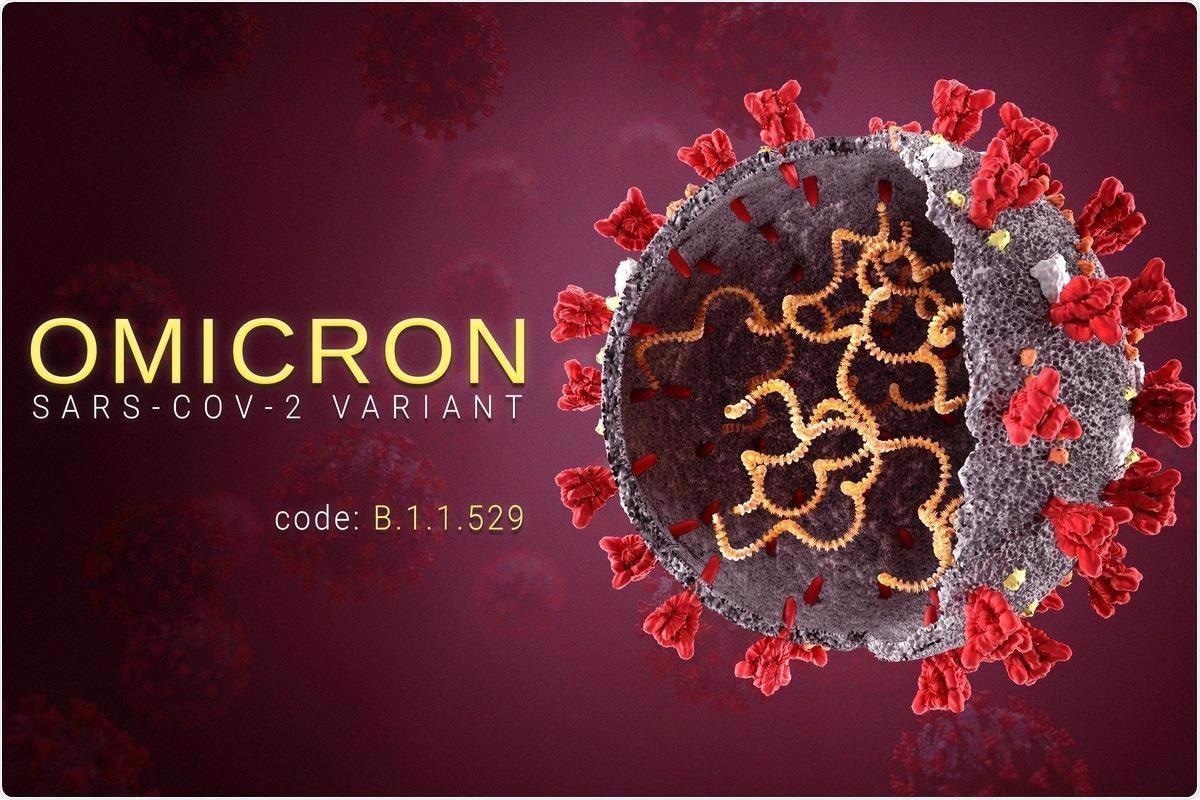Due to the mutations present in the receptor-binding domain (RBD) of the spike protein, the severe acute respiratory syndrome coronavirus 2 (SARS-CoV-2) Omicron variant (B.1.1.529) exhibits high transmissibility. Although the Omicron variant predisposes to a lower risk of mortality than that from the previous variants of concern (VOC) of SARS-CoV-2, the Case fatality rate (CFR) remains high for cancer patients compared to individuals without significant comorbidities.

Study: Impact of COVID-19 on case fatality rate of patients with cancer during the Omicron wave. Image Credit: Orpheus FX / Shutterstock.com
This retrospective study was conducted on a cohort including 134 males and 151 females, out of which 110 were Hispanic, 95 were African-American, and 41 were Caucasians. The mean age of the participants was 61 years.
Overall, 78% of the participants had solid tumors, 25% of whom had metastatic disease, while 22% suffered from hematological malignancies. Among patients with solid tumors, 42% (94 patients) were above 65 years of age, whereas in the group with hematologic malignancies, only 29% (18 patients) were over 65 years of age. Additionally, among the 13 patients younger than 18 years of age, 77% (10 individuals) had hematologic malignancies, and 23% (3 individuals) had solid tumors. It was noted that ten patients had received anti-CD20 therapy, and 12 patients had undergone stem cell transplants.
Among the participants, 72% (205 patients) were fully vaccinated—this group included patients who had received the booster dose. Overall, 19.5% (56 patients) of the participants were unvaccinated, while 3.5% (9 patients) were partially vaccinated—who had received one dose of mRNA-1273 or BNT162b2 vaccine.
Out of the 62 patients with hematologic malignancies, 37 (60%) were fully vaccinated, and eight (13%) had received the booster dose. Among the 223 individuals with solid malignancies, 169 (76%) were fully vaccinated, and 52 (23%) had received the booster dose. Of note, the vaccinated subgroup comprised older participants (mean age 64 years) than the unvaccinated subgroup (mean age 52 years).
At the time of the analysis (27th of January, 2022), the estimated CFR was 4.9%, with 14 patients dying from COVID-19. A significant difference was found between the mortality rates of hospitalized patients and outpatients. The unvaccinated subgroup has a higher predilection to hospital admission. It was also noted that the CFR did not depend on the type of cancer, the patient’s race or the vaccination status. Mortality was found to be higher in cancer patients who were over 65 years of age with concomitant COVID-19 and in those with solid metastatic tumors compared to those in patients with early and/or localized disease.
To identify the reasons for higher CFR among cancer patients, a detailed review was performed for those who had passed away. It was found that while several patients were in the advanced stages of the disease with the antecedent complication at the time of diagnosis of COVID-19, several others contracted the SARS-CoV-2 infection while hospitalized.
The absence of respiratory symptoms in several patients with COVID-19 suggested that they probably died due to complications of cancer. In fact, nearly all patients who had received the booster dose died of cancer rather than COVID-19. A group of patients was predisposed to COVID-19 disease due to compromised immunity either due to lack of immunization, partial immunization or severe immunosuppression (3 patients – one with advanced AIDS and 2 with poor or no response to COVID-19 vaccination on anti-spike antibody test).
A control group of 10,996 individuals (median age 38 years) with a positive polymerase chain reaction (PCR) test for COVID-19 was also included in the study to determine whether the mortality was higher in the cancer cohort. In the control group, 53% were fully vaccinated—with at least two COVID-19 vaccine doses, with or without a booster dose. The results revealed a significantly higher CFR in the cancer cohort compared to the control group. It was also found that older and unvaccinated people had a comparative higher CFR.
On analyzing the fully vaccinated cohort, patients who had received the booster dose showed significantly lower mortality rates. A higher mortality rate was found in the former cohort on comparing vaccinated individuals in the cancer group and those in the control group.
Discussion
The results emphasized the importance of vaccinations in lowering the COVID-19 mortality rate among cancer patients. In addition, the efficacy of the booster dose was also highlighted. The difference between CFR among cancer and the control groups can be attributed to a number of factors like the small sample size and lower age (median of 52 years) of the unvaccinated cancer cohort – with 18% being pediatric patients.
In the vaccinated cancer cohort, 10% had received only one dose of the Ad26.CoV2.S vaccine – which is now considered insufficient due to the gradual waning of immunity. The time elapsed since the last vaccine dose (mean-185 days) may also have contributed to the lesser protective effect and hence, an increased CFR in the cancer cohort. Though the CFR reduced in the third wave of the COVID-19 pandemic—caused by the Omicron variant—the adverse impact on cancer patients could have occurred due to the advanced age, advanced tumor stage, and increased comorbidities in this cohort.
Conclusion
The CFR among cancer patients affected by COVID-19 depends on the status of their cancer, the level of immune suppression, as well as the vaccination status of these patients.